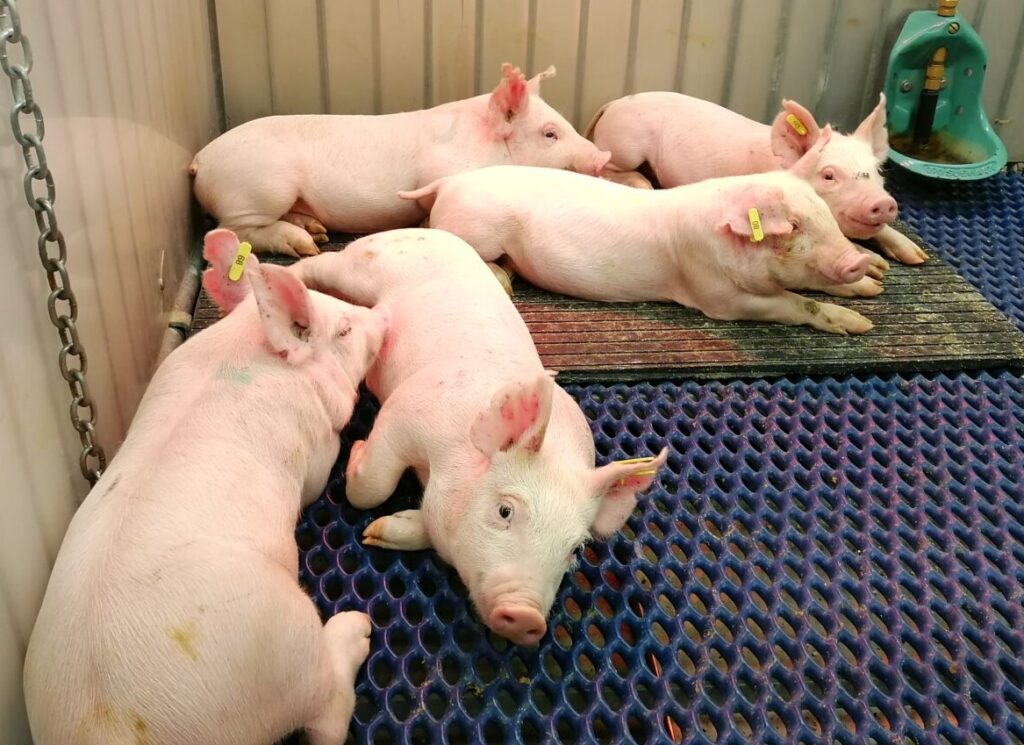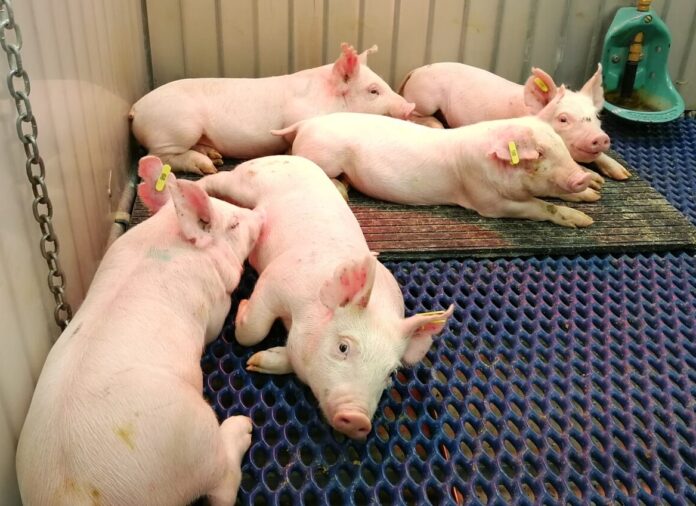By Zhiqi Zhou
Editor’s note: Zhiqi Zhou is a communications and journalism intern with the Canadian Pork Council (CPC). For more information, contact Chloe Belchamber, Manager, Operations and PPRA, CPC at ‘belchamber@cpc-ccp.com.’

The Canadian pork industry is a vital part of the national economy and a global leader in producing safe, high-quality and sustainable food. At the heart of many of the sector’s advancements is the Pork Promotion and Research Agency (PPRA): a federally legislated body that plays a behind-the-scenes yet crucial role in supporting the industry’s growth.
Chloe Belchamber, Manager of Operations and PPRA, Canadian Pork Council (CPC) spoke about the agency’s work, highlighting how it fuels innovation, supports marketing efforts, collaborates across sectors and faces evolving challenges with a forward-looking approach.
“Rather than focusing on branded campaigns, the agency supports generic pork research and promotional efforts that benefit the entire sector,” said Belchamber. “The PPRA is intended to fuel innovation, support marketing efforts, and lead to collaboration across sectors while facing evolving challenges with a forward-looking approach.”
The PPRA was established under the Farm Products Agencies Act, with a mandate to promote the production and marketing of hogs and pork products across interprovincial, export and import trade. The PPRA’s activities are funded through an import levy system. This levy – equal to the domestic check-off amount – is applied to all imported hogs, pork and pork products. The information used to calculate the levy comes from Agriculture and Agri-Food Canada (AAFC) and the Canada Border Services Agency (CBSA), and invoicing is handled on the PPRA’s behalf by the Canadian Beef Check-Off Agency, which brings more than 15 years of experience in levy collection. Levy funds are re-invested into strategic initiatives aimed at making the Canadian pork industry more competitive and sustainable.
“By complying with World Trade Organization regulations and principles of national treatment, the agency’s model ensures fairness between imported and domestic products,” said Belchamber. “A unique aspect of the PPRA’s work is that its promotional and research materials are made available to all industry players – producers, importers and processors alike.”
This inclusive approach encourages everyone to contribute to strengthening pork’s position in the marketplace and ensures Canadian pork continues to be trusted, innovative and efficient on both the domestic and global stages.
Marketing and research benefit

A major pillar of the PPRA’s mission is supporting research that drives improvements in production practices, environmental sustainability and animal welfare. Research activities are carried out through a service provider agreement with Swine Innovation Porc (SIP).
SIP’s investments in science are already producing tangible results. For instance, current projects include strategies to optimize phosphorus and nitrogen utilization and studies on replacing antimicrobials in weaned piglets. SIP also supports research into animal welfare, including transitional funding for a dedicated Animal Welfare Chair. All these projects fall under a newly launched framework that facilitates knowledge transfer and ensures that research findings are shared directly with producers.
The PPRA, meanwhile, plays an active role in consumer education and marketing. Through its partnership with Canada Pork, the agency runs broad-reaching marketing campaigns to promote pork’s value without highlighting any specific brand. One such campaign, ‘Pork, Eh!’ uses multiple social media platforms to showcase pork’s nutritional benefits, versatility and cooking ideas for consumers.
In a sector as interconnected as agriculture, collaboration is essential, and the PPRA is no exception. The agency works directly with producers and processors to disseminate research findings and marketing tools that can be adapted to suit individual needs. It also partners with key government agencies, including AAFC and CBSA, to facilitate levy collection and ensure regulatory compliance. Oversight is provided by the Farm Products Council of Canada.
“Close relationships with organizations such as Canada Pork and SIP ensure that marketing and research programs remain aligned with industry needs and priorities,” said Belchamber. “These partnerships allow the PPRA to deliver meaningful results while avoiding duplicating efforts.”
Challenges remain despite advantages

Despite its many successes, the PPRA and the Canadian pork industry face significant challenges. Chief among them is maintaining competitiveness in both domestic and international markets. This requires constant innovation, high production standards and the ability to respond to changing consumer demands. Increasingly, Canadian consumers are prioritizing health, sustainability and ethical practices, which are driving their choices. This shift places pressure on the Canadian pork industry to remain transparent at all stages of the value chain, while continuing to deliver high-quality products.
At the same time, regulatory changes – whether they involve trade agreements, environmental policies or animal health standards – can significantly impact the industry. Adapting to these changes requires agility, cooperation and often new investments in compliance and innovation.
Potential foreign animal disease outbreaks are another challenge that should not be underestimated. If African Swine Fever (ASF) or Foot-and-Mouth Disease (FMD) were to be discovered in Canada, it could devastate pork production and processing by shutting down access to export markets, triggering major backlogs of domestic pigs and pork that would ultimately need to be absorbed by the Canadian consumer market. For the PPRA, this would mean a dramatic loss of revenue, since the agency relies on imports to generate funding. Without those imports, its ability to support vital research and promotional work could be severely limited. Still, Belchamber remains optimistic.
“Through careful planning, strong partnerships and a focus on shared benefits, the PPRA continues to provide crucial support to one of Canada’s most important agricultural sectors,” said Belchamber. “By investing in generic, science-based promotion and research, the agency is helping producers not just adapt to change, but lead the way in shaping a resilient, innovative future for Canadian pork.”





